
Fat chicken
 المؤلف:
L.A Hill
المؤلف:
L.A Hill
 المصدر:
Elementary Steps To Understand
المصدر:
Elementary Steps To Understand
 الجزء والصفحة:
26-1
الجزء والصفحة:
26-1
 25/10/2022
25/10/2022
 1970
1970

Mick lived in the country, and he had quite a big garden. He grew vegetables, and he had some nice, fat chickens too. He sold the eggs and the meat, and got quite a lot of money for them.
His neighbor had a big garden too, and he also had vegetables and nice, fat chickens in it. There was a wire fence between the gardens, but it was very old, and the chickens often found holes in it and went through.
Now Mick wanted a new fence between his garden and his neighbor’s, so Mr. Biggs came to build it. Mick said to him, 'Please make the fence out of strong wood. And I want a hole in it. Make it big enough for my chickens to get into my neighbor’s garden and eat his vegetables, but too small for his to get into mine and eat mine.'
A Which of these sentences are true (T) and which are false (F)? Write T or F.
- Mick had a big garden.
- He grew vegetables and had some chickens.
- Mick was very poor.
- The wire fence was old, and it had holes in it.
- Mick wanted a strong fence with a hole in it.
- Mick wanted his neighbor’s chickens to come into his garden.
B Answer these questions.
- Where did Mick live?
- What did he do in his garden?
- What did he do with his eggs and chickens?
- What did his neighbor have?
- What was there between Mick's garden and his neighbor’s?
- Why did the chickens often get through it?
- What did Mick want Mr. Biggs to do?
- What did he say to him?
C Choose the correct sentence under each picture. Write the correct sentences down.

- Mick has sold his eggs.
- Mick is going to sell his eggs.
- Mick is selling his eggs.
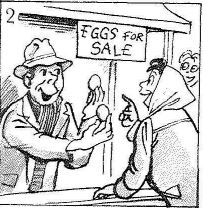
- Mick has sold his eggs.
- Mick is going to sell his eggs.
- Mick is selling his eggs.
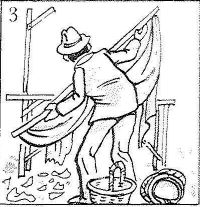
- Mick has sold his eggs.
- Mick is going to sell his eggs.
- Mick is selling his eggs.
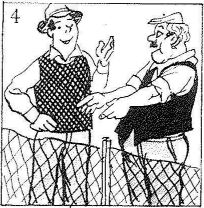
- Mr. Biggs has built the fence.
- Mr. Biggs is building the fence.
- Mr. Biggs is going to build the fence.
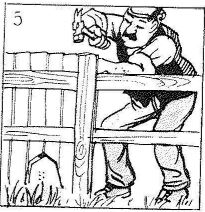
- Mr. Biggs has built the fence.
- Mr. Biggs is building the fence.
- Mr. Biggs is going to build the fence.
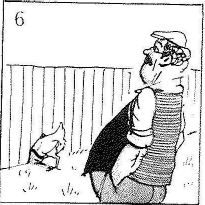
- Mr. Biggs has built the fence.
- Mr. Biggs is building the fence.
- Mr. Biggs is going to build the fence.
 الاكثر قراءة في Elementary
الاكثر قراءة في Elementary
 اخر الاخبار
اخر الاخبار
اخبار العتبة العباسية المقدسة


